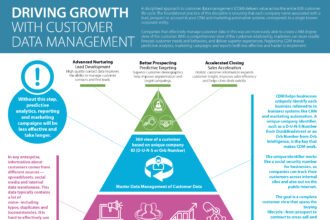One of the key concepts of the MIKE2.0 Methodology is that of an Organisational Model for Information Development. This is an organisation that provides a dedicated competency for improving how information is accessed, shared, stored and integrated across the environment.
One of the key concepts of the MIKE2.0 Methodology is that of an Organisational Model for Information Development. This is an organisation that provides a dedicated competency for improving how information is accessed, shared, stored and integrated across the environment.
Organisational models need to be adapted as the organisation moves up the 5 Maturity Levels for organisations in relation to the Information Development competencies below:
Level 1 Data Governance Organisation – Aware
- An Aware Data Governance Organisation knows that the organisation has issues around Data Governance but is doing little to respond to these issues. Awareness has typically come as the result of some major issues that have occurred that have been Data Governance-related. An organisation may also be at the Aware state if they are going through the process of moving to state where they can effectively address issues, but are only in the early stages of the programme.
Level 2 Data Governance Organisation – Reactive
- A Reactive Data Governance Organisation is able to address some of its issues, but not until some time after they have occurred. The organisation is not able to address root causes or predict when they are likely to occur. “Heroes” are often needed to address complex data quality issues and the impact of fixes done on a system-by-system level are often poorly understood.
Level 3 Data Governance Organisation – Proactive
- A Proactive Data Governance Organisation can stop issues before they occur as they are empowered to address root cause problems. At this level, the organisation also conducts ongoing monitoring of data quality to issues that do occur can be resolved quickly.
Level 4 Data Governance Organisation – Managed
- A Managed Data Governance Organisation has a mature set of information management practices. This organisation is not only able to proactively identify issues and address them, but defines its strategic technology direction in a manner focused on Information Development.
Level 5 Data Governance Organisation – Optimal
- An Optimal Data Governance Organisation is also referred to as the Information Development Centre of Excellence. In this model, Information Development is treated as a core competency across strategy, people, process, organisation and technology.
The MIKE2.0 Solution for the the Centre of Excellence provides an overall approach to improving Data Governance through a Centre of Excellence delivery model for Infrastructure Development and Information Development. We recommend this approach as the most efficient and effective model for building these common set of capabilities across the enterprise environment.
Feel free to check it out when you have a moment and offer any suggestions you may have to improve it.







